Yoga; A Natural Approach To Improving Your Health

Yoga is one of the most holistic approaches to invigoration & fitness practices that we probably know of! If you’re curious to see what scientific studies say about yoga, keep on reading. Take a look at the studies listed below along with the Yoga poses that they correlate with:
- Diabetes Risk Reduction & Control
The complex condition plagues the young and old alike. There is no cure for diabetes but the condition can be potentially managed with lifestyle, eating changes and exercises. A BioMed study has found that Yoga offers a likelihood of decreasing weight-related type 2 Diabetes risk factors. Yoga was found to be more effective at weight reduction and inch loss than walking as a measure for controlling diabetes! Try Tree, Bow, Plough & Half Twist poses!*
- Hypertension Management
Though not a life threatening condition by itself, high blood pressure(BP) when not kept in check will cause the heart to overwork and weaken. A Yale study revealed that Yoga interventions resulted in reduction of BP and related cardiovascular deaths. At Medical Center of Central Georgia Study you will find how yoga as a non pharmacologic way to control BP is promising! Try Bound Angle, Bridge, Corpse, Downward-facing-dog & Reclining hero Poses!*
- Cardiac Health
Yoga could helps in boosting the levels of haemoglobin and red blood cells, thins the blood by making platelets less sticky and reduces the clot-forming proteins in the blood. This reduces the risk of clot formation which is the cause of cardiac failure. Yoga breathing techniques regulate our intake of oxygen and could help in keeping our heart healthy. Check out Continuum Heart Institute Study to catch up on the significance of yoga in the modification of cardiovascular risk factors and in the rehabilitation of the post-myocardial infarction patients. Try Mountain, Tree, Boat, Big Toe, Child, Corpse, Sukhasana & Fire Log Poses!*
- Ease Migraines
The study showed a noteworthy decline in migraine headache frequency and other features in patients who practiced Yoga for over 3 months. Try Legs-up-on-the-wall, Bridge, Big toe, Head-to-Knee-forward-bend, Plow & Wide-legged-forward-bend Poses.*
- Neck & Back Pains
A NCCIH funded study at University of Rajasthan has revealed that the practice of Iyengar Yoga by people who had chronic low back pain significantly reduced pain and disability in 6 months. Iyengar Yoga focuses on proper alignment of our body to strengthen the muscles and support the joints. Another study found that 12 weekly yoga classes produced better results than usual medical care for neck and back aches. Try Cat, Child, Cow, Reclining Twist & Extended Puppy Poses!*
- PTSD & Depression Management
Studies have found Yoga as a potentially effective tool to deal with Post Traumatic Stress Disorder; whether it was the Bihar flood victims or Tsunami survivors in Andaman Islands or survivors of South East Asia tsunami . It has also been found to be an ancillary treatment option for patients with depressive disorders Try Corpse, Dolphin, Fire Log, Lion & Legs-up-on-the-wall & Happy baby Poses!*
Invest your time in Yoga to lead better lives because, “When you know better, you do better”-Maya Angelou.
*Results may be experienced differently by different individuals.
This report is developed from clinical studies, research, and customer reviews analyzed by the editors.
Further supporting research and documentation can be found in the “Research” section as well as
the “Disclosure” section of Herbalistreport.
These Natural Remedies vs. Stress May Be Holding the Key for You
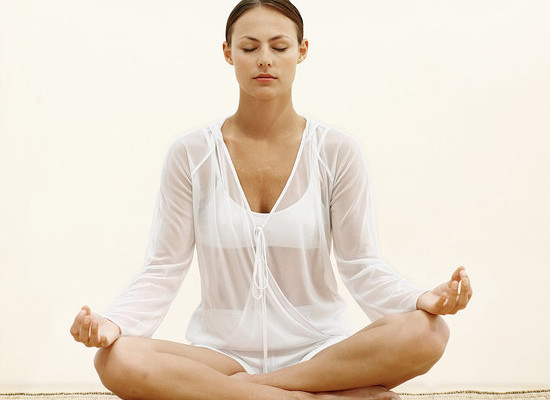
With your hectic schedule, life and work pressure and poor lifestyle, you might be into so much stress. Lately, you have been freaked, worried and/or anxious because you’ve been upset of so many things, not mentioning health, career, love and relationships, to name a few. Your heart is beating fast and so is your breathe, and worst, your mind is into a gloomy mode.
On top of these, you badly want to relax and have some time to breathe. In short, you want to lower stress but in the non-drug way. You can! Come on in and check out the following tips for lowering stress using the best natural remedies we’ve compiled for you.
Exercise
This is a no-brainer and you probably have heard about it a hundred times. But there is truth to it, as exercise influences your mood, in a positive way, and reduces stress. Studies revealed that physically active (and fit) people aren’t depressed and stressed.
The main reason behind it is that aerobic exercises, including walking and running, can help in increasing the body’s norepinephrine levels, a kind of chemical that aids the brain in dealing with negative thoughts along with stress.
At the very least, you should be spending about 30 minutes of exercise at least five times per week. Remember, you don’t need to stay long hours in the gym and eventually stress yourself in doing so, but a little bit of any aerobic activity, as much as possible, is what you need to start with.
Sleep
This is one of the best stress reducers of all because having lack of it can make you irritable and cranky, but not if you have sufficient sleep. Establish consistent sleeping habits, including sleeping and waking up same time every day, if possible. You can also consume more of bananas and peanuts, which are good for promoting sleep, too.
Music
As old as history, music is one of the best natural remedies for lowering stress, especially classical music, which can help improve your mood and give you relaxation. Any music of your liking actually can be of help in calming the brain and promoting body relaxation.
Herbal
Then there are herbal remedies, which can also help in dealing with stress, and some of these include American, Asian and Siberian ginseng, ashwagandha and rhodiola, among others. They are great herbs, which can keep you away from the pressure that wreak havoc in your system and increase your stress level. You can also try lavender tea or chamomile tea, which is known for its calming and soothing effect. Before taking any of these though, you should consult your doctor, especially if you have an underlying medical condition for safety.
Aromatherapy
Known as one of the most effective of all natural remedies for lowering stress, aromatherapy is the technique of applying essential oils, which then enter the skin onto the hair follicles and which are then absorbed by the body when circulated in the bloodstream. If you love massage, try aromatherapy and gradually reduce stress that can also help in improving your blood circulation and balance your energy flow. As you know, you can have a better mood if you have higher energy, something to help in reducing your stress level. Aside from lowering stress, aromatherapy also relaxes tense muscles and reduces pain and soreness.
Is It High Time for Holistic Health Approaches?
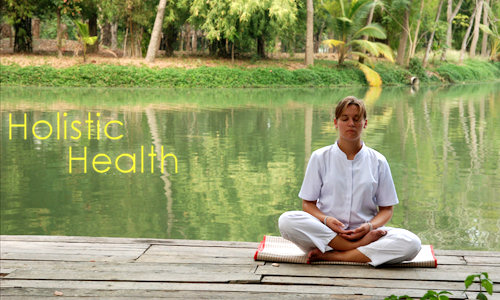
Considering the whole person in healing, holistic health approaches focus on someone’s overall state of being, including on his body, mind, spirit and emotions—all towards optimal wellness. Based on the principles where these approaches are focused into, one can achieve an optimal health if he or she would be able to keep the balance in all of these aspects. The main goal of holistic healing, therefore, is to help someone achieve and gain proper life balance.
What Is Holistic Medicine?
Performed by holistic medical practitioners, holistic health is designed and made to improve someone’s overall health condition, considering all the aspects one has to balance so that his body, mind and spirit will work harmoniously with his systems functioning as a one unit. As you can imagine, people of today have certain imbalances whether on spiritual, emotional or physical and any of such imbalance negatively affects overall condition.
Holistic health approaches are performed by a holistic doctor who has an in-depth knowledge and skills on human anatomy and on both traditional and alternative approaches to natural health. Aside from their knowledge of conventional medication, they are also versed with alternative therapies when helping a patient. So if you are suffering from migraine and you paid a visit to a doctor using these approaches to potential relief, you will be interviewed of the potential causes of your problem rather than only be given with medications to get rid of headache.
A holistic doctor may then ask you of,
- Diet
- Physical activities
- Stress
- Preferred spiritual practice
- Sleeping habits/disorders
- And other health problems
Upon determination of the above, your doctor may recommend a health plan that may involve medications to reduce symptoms and lifestyle changes to get rid of recurrent pain. Because holistic health approaches are based on the belief that unconditional love and support is your main weapon against all diseases, these healing methods equally believe that you are the one responsible of your overall health and well-being and that you have the ability to heal yourself.
What Are the Types of Holistic Health Approaches?
There is a wide range of holistic health approaches used by practitioners in helping you. And for the most part, you will be taught on how to take control of your health by being responsible of your own being and some techniques you will learn including lifestyle changes, proper self-care, including diet and exercise, spiritual counseling and psychotherapy, among others.
There may also be alternative and complementary therapies involved, including chiropractic, acupuncture and naturopathy and modern medications included, such as surgical procedures and Western medicines. A few of the practitioners you may find in a clinic practicing holistic healing techniques are naturopathic doctors, osteopathic doctors, medical doctors and homeopathic doctors, among others, and clinic services may also vary from one to another.
Certainly, holistic health is what everyone desires for, but such isn’t easy to achieve—that is why there are holistic health approaches geared towards the betterment of the body, mind and spirit in order that they work as ‘one’ with balance and harmony for a positive health impact.
Five Simple Herbal Teas with Awesome Uses

Loaded with vitamins, minerals and a handful of antioxidants, which work to protect your cells from free radicals that destroy them, herbal teas are a few of the most natural ways of achieving holistic health. They do not only offer a great drink to replace traditional tea or coffee, but they can also assist in detoxifying your system, helping you achieve a healthier body with better immunity against sicknesses!
Herbal Teas and Uses
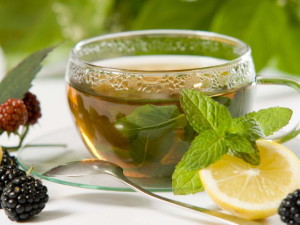 There are several kinds of teas for a specific purpose, and each of them work based on your purpose. But do not be afraid to try something new all the time. Here are some of the most common herbal teas to try.
There are several kinds of teas for a specific purpose, and each of them work based on your purpose. But do not be afraid to try something new all the time. Here are some of the most common herbal teas to try.
- Peppermint tea is recommended to those who want to improve digestion, including bloating and abdominal gas as well as muscle spasm. If you are suffering from nausea, this kind of tea may also be for you, as it is ideal for heating up and making you sweat. However, this tea is not ideal if you are suffering from heartburn or indigestion.*
- Chamomile tea offers sedative and calming effects, something beneficial for people struggling to get sleep or those suffering from insomnia. But that’s not all because chamomile is also known as a great remedy against cough, colds, fever and as an anti-inflammatory in the mouth (*Gargle).*
- Ginger tea is another digestion helper, especially if you are looking to get rid of an upset stomach with vomiting and can also be consumed before traveling if you have motion sickness. All you need to do is simmering a piece of ginger root for about 15 minutes and then adding lemon juice or honey, if desired, especially if you have colds. Ginger has germ-fighting properties that can help in curbing cold symptoms as well as in boosting your immune system.*
- Nettle tea is one of the best remedies against anemia and high blood pressure, so people suffering from any of these can just take a couple of the leaves of the sting nettle to make a tea . This is also one of the best herbal teas for arthritis, colds, coughs, urinary tract infections, congestion, kidney issues and bladder disorders.*
- Lavender tea is another popular herbal tea that can calm your body and mind, inducing sleep. It may also be ideal to get rid of depression and negative thoughts because lavender is known for uplifting the mood and spirit, helping you to see the world in a more positive light than ever before. Aside from its mood-enhancing benefit, this tea is for you if you are suffering from bowel infections, colic and flatulence. It also works against asthma, bronchitis, and coughs and reduces temperature during a fever. And lastly, it can also help in the speedy healing of cuts, ulcers, sores and wounds.*
There you have the top five herbal teas to try for their benefits. Be sure to use fresh leaves when making a tea; otherwise, you can get powdered teas from reputable online sellers. Nonetheless, herbal teas are great for improving your overall health and wellness and are perfect to enjoy any time of the day.
*Results may be experienced differently by different individuals.
This report is developed from clinical studies, research, and customer reviews analyzed by the editors.
Further supporting research and documentation can be found in the “Research” section as well as
the “Disclosure” section of Herbalistreport.
Top Eight Natural Immune Boosters You Can Try Now
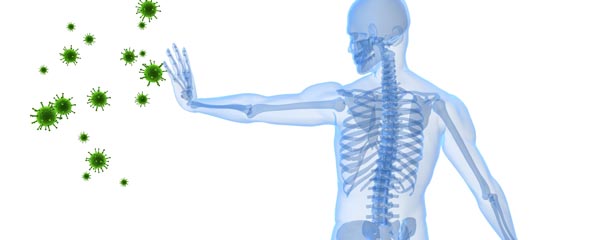
Do you want to boost your immune system—in the natural way? Well then, you have come to the right post to help you with just that, as we’re going to share with a few natural immune boosters, including herbs and substances, which are proven to take your health a notch higher with their potent immune-boosting properties. You can fight off diseases and infections if you have a strong shield against infections, diseases and viruses and that you can do by checking these tips out.
Natural Immune-Boosting Herbs
- Echinacea: This is a popular herb identified for its great immune system boosting properties, especially when combined with goldenseal, according to studies, and works by strengthening your respiratory system and potentially helping avoid upper respiratory tract infections and common colds. You can enjoy it as tea.*
- Garlic: According to recent studies conducted by Ellen Tattelman , an assistant professor at the Albert Einstein College of Medicine of Yeshiva University, garlic, as she reconfirmed it, has antimicrobial, cardiovascular and antineoplastic properties that all function to improve one’s health and immune system.*
- Ginseng (Korean ginseng): It is one of the best-known immune-boosting herbs with its active component called ginsenosides, which possess anti-cancer and anti-inflammatory properties. There are also clinical studies that prove how it works against diabetes, how it improves the immune system and how it helps in psychological function improvement.*
- Ginger: Also known for its anti-inflammatory properties, ginger can help in reducing joint and muscle inflammation and in preventing cardiovascular conditions, high cholesterol and blood clotting. If you want to improve your health, then ginger, which you can either add to dishes or drink as tea, may be for you.*
- Turmeric: Containing the very potent curcumin, turmeric should not be left out in this list of the top food for boosting the immune system due to its antioxidant properties, which can aid in fighting off free radicals that destroy the cells and cause imbalance in the body’s functions. Aside from its antioxidant properties, turmeric also has anti-inflammatory, antibacterial and soothing effects and can stimulate the adrenal glands to release more of the anti-inflammation hormones.*
- Bell peppers: Known for their capsaicin compounds, bells peppers are loaded with carotenoid lycopene that can help in lowering your risk of developing cancer. It also comes with high levels of beta-carotene that is converted to vitamin A and has Zeaxanthin that is beneficial in preventing macular degeneration.*
- Ganoderma: Also called reishi, ganoderma is a bitter mushroom with sweet benefits for your immune system, according to traditional Chinese medicine. It is known for promoting longevity and health for users and is a great aid for strengthening one’s immunity against diseases, such as cancer. And because it is loaded with antioxidants, you can also prevent urinary tract infections and common colds.*
- Gingko Biloba: Its leaves contain potent immune boosters called bilobalides and ginkgolides, which can protect your body from free radical damage and from radiation poisoning. According to recent studies, Gingko Biloba helps in neutralizing the free radicals and oxidizing agents from radiation, preventing cell death.*
Developing a strong immune system is your body’s main defense to fight back when it is under attack, and every day, it is combating all types of invasion from parasites, viruses and bacteria. Therefore, it may be wiser that you start improving your defense mechanism against all these so that you stay disease-free and that you can recover as fast as you can when an illness strikes. Try these natural immune boosters and live a healthier, disease-free life starting today!*
*Results may be experienced differently by different individuals.
This report is developed from clinical studies, research, and customer reviews analyzed by the editors.
Further supporting research and documentation can be found in the “Research” section as well as
the “Disclosure” section of Herbalistreport.
What Exercise Has to Do with Improving Sleep

How well you sleep affects how you feel, think and act during waking hours. And if you are suffering from lack of energy, resulting to low productivity and irritability during the day, it may be time to look into your daily routines and review what could be wrong or maybe missing that affects your sleep. Have you looked into your physical activities and considered exercise lately? Did you know that, according to studies, exercise and sleep are correlated in a sense that getting enough of physical activities or exercises can improve sleep? If you want to promote better sleep, check out the following and learn more about it.
Sleep and Exercise: How Are They Linked?
According to the 2013 Sleep America Poll conducted by the National Sleep Foundation, people who exercise on a regular basis can sleep better than the people who do not engage in any, concluding that there is a direct link between sleep and exercise and noting that exercise can dramatically improve sleep, especially for patients suffering from insomnia.
The same survey participated by 1000 respondents (intense exercisers) discovered that these people were best sleepers, while only 17 percent of them reported to having poor sleep and over 50 percent of non-exercisers experienced poor sleep yet more sleepiness at daytime. Part of this data, about 24 percent of light exercisers revealed of having difficulty in sleeping.
Start small, according to experts. If you’re a non-exerciser, start with small steps, like a 10-minute walk every day so that you can improve your night sleep. Perhaps, it is not the amount of time you spend to get back to fitness that will eventually result to better night sleep, but it is in your consistency to performing even basic exercises, such as jogging or walking.
More so, studies suggest that lack of exercise can also put you at a greater risk of developing sleep disorders, including apnea and insomnia. In fact, 44 percent of non-exercisers are at a moderate risk to suffering from sleep apnea.
Based on the above, you can tell for yourself that indeed exercise impact sleep, and so you may want to get started to incorporating even light to moderate physical activities into your daily schedule so that you can achieve better sleep.
But What Is Exercise and Timing It About?
You might have heard that you should not exercise before sleeping. And one thing behind it is that your temperature goes up when you exercise and it then drops after six hours. The cooler your temperature drops the more you will be feeling sleepy, according to the National Institute of Neurological Disorders and Stroke. So overall, take note of exercising at least six hours before hitting the sack.
But don’t worry if you cannot do that because you can still exercise at any time of the day to achieve overall physical health. Just remember, do not engage in exercise the last couple of hours before sleeping, so you won’t stay awake when you have to sleep. Finally, consult your doctor prior to incorporating exercise into your daily routine, especially if you have a pre-existing medical condition.
Top Four Remedies for Natural Muscle Pain Remedies

Everyone suffers from muscle pain at certain points in their lives, and for certain reasons, including sports activities, workouts, daily functions or physical condition, among others causes. Thanks to natural muscle pain lessening brought to us by herbs that combat inflammation and get rid of pain, which may also be due to various medical conditions, such as arthritis, fibromyalgia and muscle strains. Check out the following natural remedies for muscle (and joint) pain.*
Four Natural Remedies vs. Muscle Pain
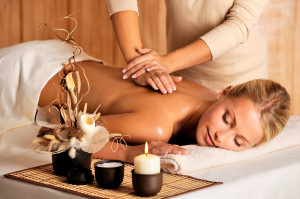 Massage therapy or aromatherapy: Functioning as a type of meditation and relaxation for many people, massage is one of the best natural remedies against muscle pain, especially if you are going for aromatherapy massage. This type of massage involves the use of essential oils, including sage, lavender and chamomile, among others. They work to help get rid of tense and sore muscles and aid to faster recovery from an injury, too. That not only it works to ease from muscle pain, aromatherapy also improves your overall wellbeing because it strengthens the immune system, improves blood circulation and aids in the transportation of vital nutrients to every single cell in the body.*
Massage therapy or aromatherapy: Functioning as a type of meditation and relaxation for many people, massage is one of the best natural remedies against muscle pain, especially if you are going for aromatherapy massage. This type of massage involves the use of essential oils, including sage, lavender and chamomile, among others. They work to help get rid of tense and sore muscles and aid to faster recovery from an injury, too. That not only it works to ease from muscle pain, aromatherapy also improves your overall wellbeing because it strengthens the immune system, improves blood circulation and aids in the transportation of vital nutrients to every single cell in the body.*
- Exercise: Best known for helping you achieve holistic health, exercise is also a natural muscle pain remedy there is. Unlike the common misconception that you should avoid working out when suffering from pain, it actually helps including light to moderate physical activities when you are experiencing muscle pain because it promotes better blood circulation, eventually speeding up the recovery process to getting you back into the game sooner. As you know, your body is designed and made to move, and so lack of movement isn’t of help for it. If you want to get rid of muscle pain, ask your physical therapist and medical practitioner about a suitable workout program for you. Some options may include a yoga class, walking and any simple movements that may help in eliminating muscle pain and soreness.*
- Meditation: Promoting relaxation and easing the muscle from stress, meditation is a good natural remedy against muscle pain. You can practice proper breathing techniques that will aid in better blood circulation and adequate delivery of vital nutrients throughout your body.*
- Acupuncture: It does not only get rid of muscle pain but pain from menstruation, migraines, arthritis and post-surgery and in the lower back. Tiny needles inserted across pressure points in the body can help in releasing the body’s natural painkillers called the endogenous opioids. According a study conducted by the researchers at the University of Maryland School of Medicine, acupuncture had helped people with knee arthritis and that it reduced their pain by up to forty percent in six months with two times a week of sessions, which were then reduced to once a month. It had also helped those suffering from lower back pain, according to the same study.*
Aromatherapy, exercise, meditation and acupuncture—only a few of the best natural remedies to help lessen muscle pain. You can ask your doctor about them and see what works for you.*
*Results may be experienced differently by different individuals.
This report is developed from clinical studies, research, and customer reviews analyzed by the editors.
Further supporting research and documentation can be found in the “Research” section as well as
the “Disclosure” section of Herbalistreport.

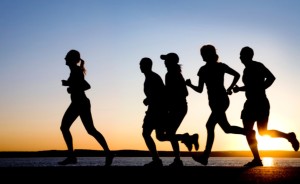
Recent Comments